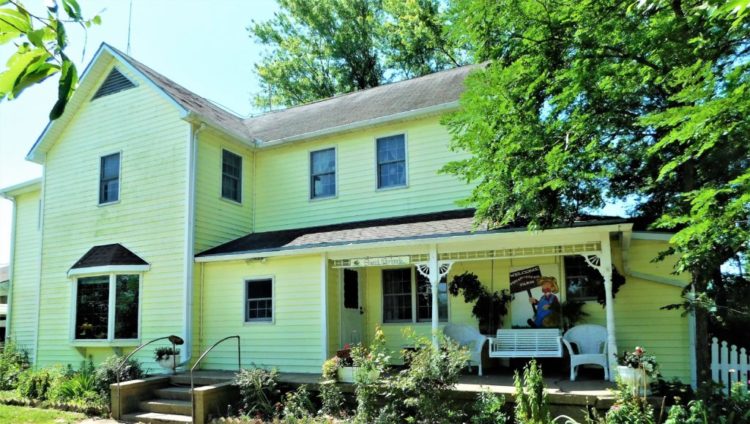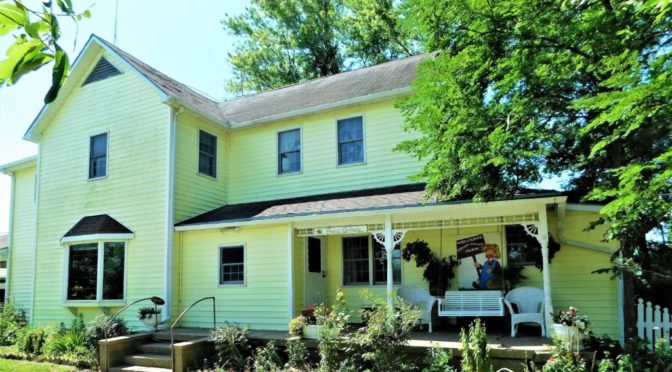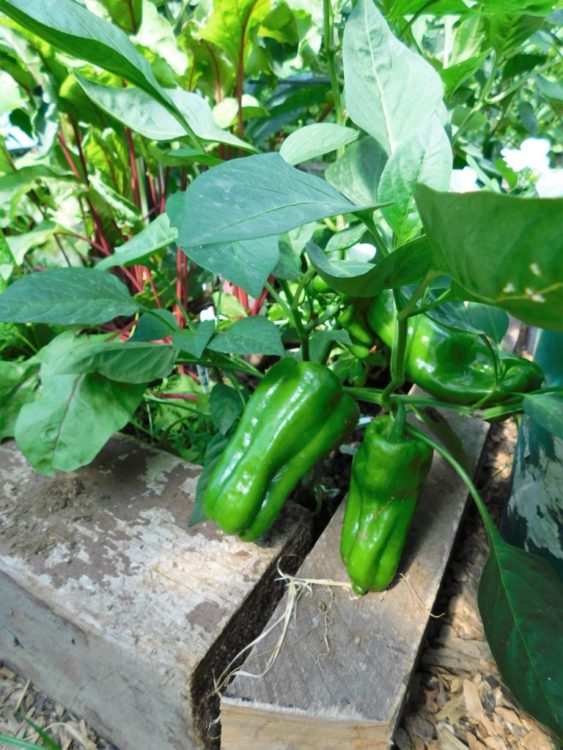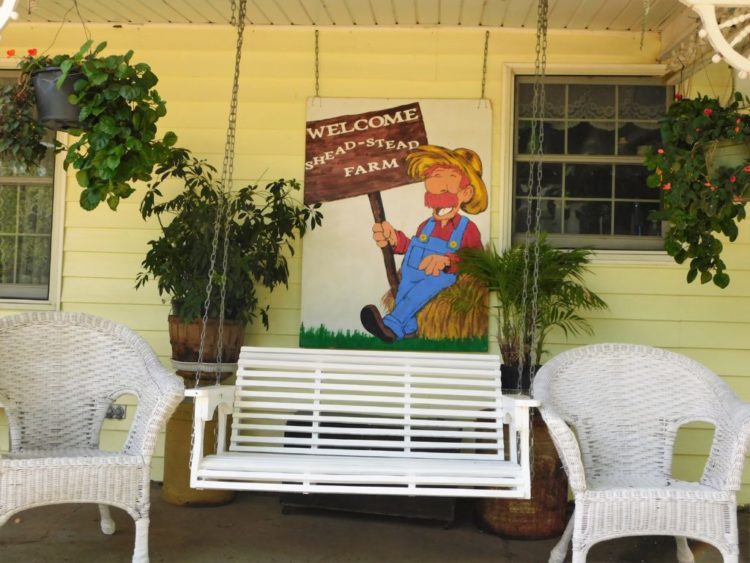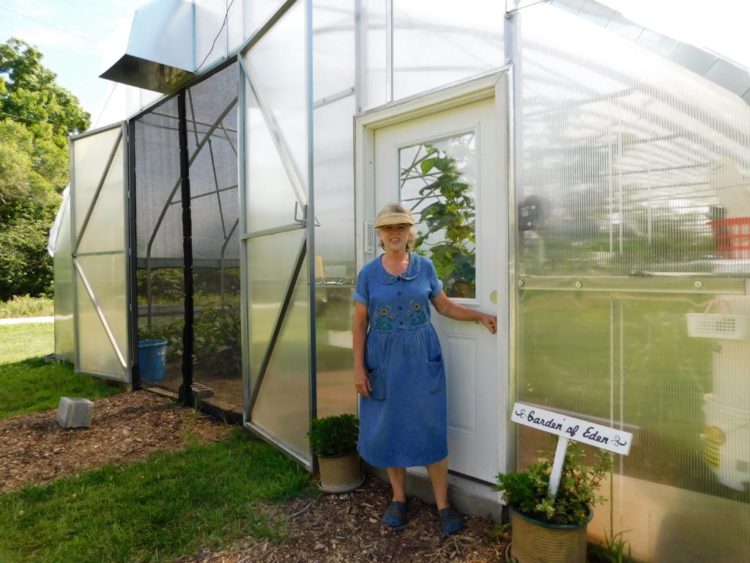
Following a lifelong dream to experiment with gardening in a controlled environment, Vickie Shead, rural Garland, applied for and received funding to build what is called a high tunnel or hoop house on the family farm.
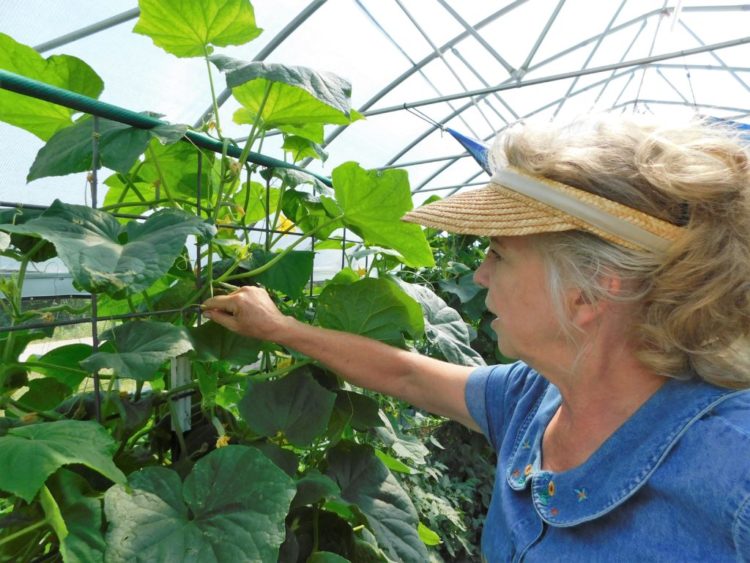
Since getting it up and going this year, there has been a learning curve in gardening.
“I thought I knew about gardening,’ she said. “But I have learned a lot.”
“We realize that this year is a huge learning curve as we have everything to learn about this new way of growing quality, organic produce. We are very thankful for the grant helping us get started in this adventure in gardening,” Vickie said.
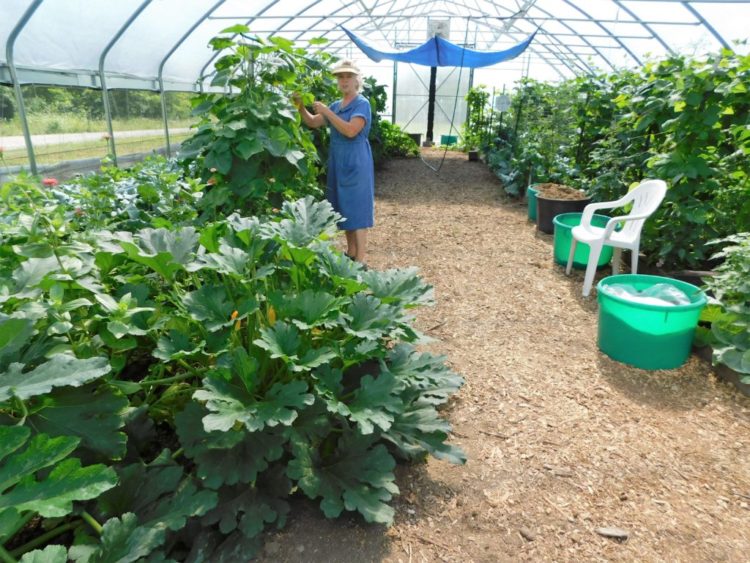
The addition of mesh siding to keep out pests has cut back on much of the insects that normally feed on garden produce, but she has help to work on the insects that do manage to get in.
Her grandchildren.
They help by handpicking insects and insect eggs and also weeding in the high tunnel garden bed.
She also uses low-technology help such as sticky yellow pads, much like flycatchers of old, to aid in getting rid of insects.
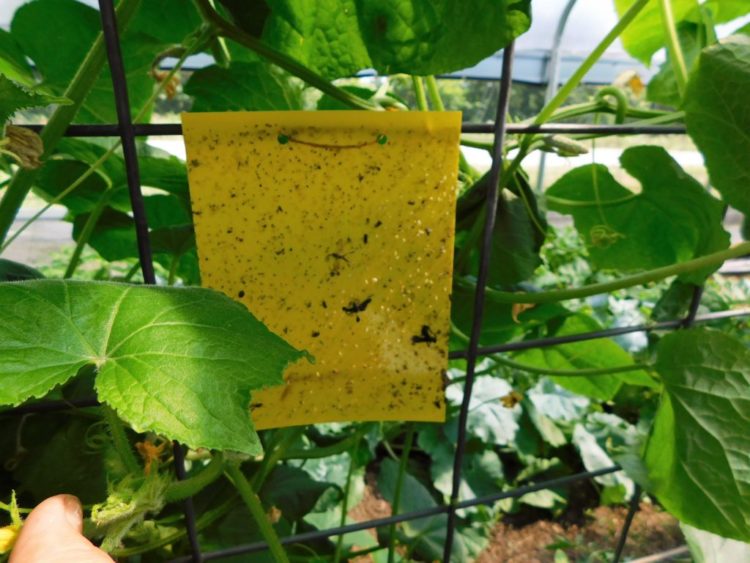
And additionally, they added insect cloth on the sides of the hoop house to lessen insect invasion.
“I needed a controlled environment from the weather and insects,” she said.
The Sheads use no chemicals on their gardens.
The following is an interview with Vickie Shead.
“High Tunnel System Initiative, commonly called a ‘hoop house,’ is an increasingly popular conservation practice for farmers, and is available with financial assistance through the Environmental Quality Incentives Program (EQIP) and can be applied for through the NRCS (Natural Resource Conservation Service).”
“The seasonal high tunnel system for crops does not include greenhouses or low tunnel systems covering single crop rows.”
“The goal is to assist producers to extend the growing season for high-value crops in an environmentally safe manner.”
“NRCS hopes to encourage growers with high tunnels which can aid in improving plant quality, soil quality, reduce nutrient and pesticide transport, improve air quality through reduced transportation inputs, and reduce energy use through local consumption. It is to be used on cropland where climatic conditions due to heat, cold, severe weather may interfere with the producing of vegetables, fruits, and other consumable crops.”
“The grant allows the producer to choose the company, the size, the style, and method of installation for their high tunnel kit.”
“When we applied, we received a grant for $6,732 for our high tunnel system.However, in order to adhere to the Shead-Spread Farm’s organic standards and future plans, we added to the grant with our own money so that we could comply to organic certification we wish to obtain in the near future. The additions included: metal framework instead of treated lumber, roll down sides and fans to increase ventiation, end walls with big doors, and shade cloth for temperature control and insect cloth (50% shade cloth) to lessen insect invasion. These additions have proven to make a wonderful growing environment that we fondly call ‘The Garden of Eden’.”
“The grant was received in the fall of 2016. The 60 x 30 feet Gothic Style High Tunnel wasn’t erected until July of 2017, so this is the Shead’s first growing season. We classify this as the learning season!
It is an on-going project far from finished.
We have yet to add permanent plumbing, electrical wiring, and rainwater irrigation system, all of which are awaiting financial resources.”
“For many years, the Shead-Spread Farm has provided fresh, organic, nutrient-packed produce from our gardens and orchards.These fruits and vegetables have fed four families (their children and grandchildren) and are used either fresh, canned, frozen, or dried. We hope to expand the growing season of our organic crops in order to sell our quality fruits and vegetables, along with our dried and powdered products through the local Fort Scott Farmer’s Market, at the farm, and through the internet. “
“However, we found that because Kansas abounds in insects, growing organic vegetables and fruits is tedious and time-consuming and next to impossible. We needed a more controlled environment for improving plant quality and climatic conditions.”
“The NRCS High Tunnel Initiative was just what we needed because it helps producers raise crops in a more controlled environment, which reduces insects, protects the plants from wind and storm damage, and lengthens the growing season. “
” I am the instigator of the project with my husband, Larry, as the main support and muscles. However, other family members also help, including many of our 17 grandchildren, who are often by my side as I work.”
